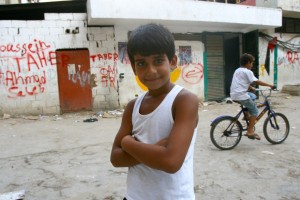
GCED Basic Search Form
Quick Search
Usted está aquí
Noticias

The Asia-Pacific Centre of Education for International Understanding (UNESCO-APCEIU) and IBE-UNESCO held a Global Citizenship Education (GCED) workshop with eight education experts from Mongolia, Uganda, Colombia, and Cambodia on 8-10 November.
Jointly led by Mr. Kim, head of Office of Research and Development, UNESCO-APCEIU and Mr. Opertti, coordinator of the Innovation and Leadership in Curriculum Learning and Assessment program, IBE-UNESCO, it took place at IBE-UNESCO’s headquarters in Geneva. Two international experts from Chile and the United States (US) also provided global input and expertise. Watch our global experts.
Global citizenship is a hot topic. Indeed, recent research shows many countries see themselves as global citizens more than citizens of their own countries*. “Given the constant challenges all citizens face in today’s world, it is more important now than ever that we address key issues including human rights, peace, gender equality and sustainable development through education. We are delighted that APCEIU is leading the way and has partnered with us to ensure that global citizenship becomes embedded in curricula globally,” says Mr. Opertti, who leads the GCED work at IBE-UNESCO.
The four countries in attendance, covering three continents, have laid the foundations for global citizenship education in their respective regions. At the workshop, the in-country experts presented the results of the analysis of the implemented curriculum, the challenges, issues, and opportunities to strengthen global citizenship education. The objective is to develop roadmaps to guide implementation in the four countries, as well as global guidance.
The two international experts Sergio Riquelme Munoz, a specialist in comparative education from Pontificia Universidad Católica de Chile and Felisa Tibbits, founder of Human Rights Education Associates (HREA), and lecturer in comparative education at Columbia University, US, provided broader global insights.
This GCED work underlines IBE-UNESCO’s mandate to strengthen the capacities of member states to design, develop, and implement curricula that ensure the equity, quality, development-relevance, and resource-efficiency of education and learning systems.
GlobeScan conducted a poll between December 2015 and April 2016 for the BBC World Service among more than 20,000 people worldwide. 18 countries where this question was asked in 2016, the poll suggests more than half (51%) see themselves more as global citizens than citizens of their country, against 43 percent who identify nationally.
Related links:
http://www.unescoapceiu.org/en/index.php
http://www.globaleducationmagazine.com/global-citizenship-education/
http://blogs.edweek.org/edweek/global_learning/2016/10/building_empathy_in_children_lessons_from_early_childhood_education.html
https://www.washingtonpost.com/news/worldviews/wp/2016/10/05/theresa-may-criticized-the-term-citizen-of-the-world-but-half-the-world-identifies-that-way/
